Fall 2024- Spring 2025
Speaker: Steve Rains, Professor of Communication at the University of Arizona
Time: March 21, 2025, 1:00 PM- 2:15 PM
Talk Title: Social Support as Kindness: Properties of Helpful Emotional Support Messages
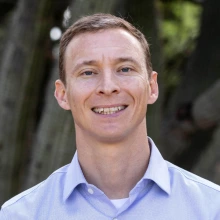
Abstract: Providing social support to others in need is an act fundamentally rooted in kindness. Despite such good intentions, not all support provision attempts yield positive outcomes. This talk will spotlight the role of communication in delivering (in)effective emotional support. We will discuss the features of (un)helpful emotional support messages, mechanisms proposed to bring about these effects, and the implications of communication technologies. The talk will conclude with some best practices for providing kind emotional support.
About the Speaker: Dr. Steve Rains is a Professor of Communication at the University of Arizona. His research is situated in the areas of health communication, social influence, and communication and technology. He is interested in better understanding how and why messages influence people, particularly in health contexts and when using communication technologies. His work in recent years has primarily focused on social support, though he routinely studies digital coping, incivility, persuasion resistance, and related topics. He is especially interested in leveraging computational social science techniques to explore the dynamic communication processes involved in these phenomena.
LINK TO PRESENTATION RECORDING
Speaker: Michelle Téllez, Associate Professor and Director of Graduate Studies in the Department
of Mexican American Studies at the University of Arizona
Time: February 7, 2025, 1:00 PM - 2:15 PM
Talk Title: Oral Histories and Digital Archives in the Borderlands
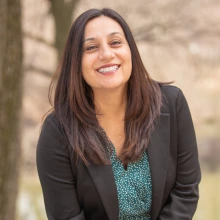
Abstract: How might digital public archives offer a more accessible modality for teaching and learning about marginalized histories in border regions? This presentation introduces two recently launched projects on Afro-Chicanx communities and Mexicana/Chicana activists in the borderlands. I will discuss development, methodology and initial observations of this multi-sited research.
About the Speaker: Dr. Michelle Téllez is an Associate Professor and Director of Graduate Studies in the Department of Mexican American Studies at the University of Arizona. Her public and academic scholarship focuses on transnational community formations, mothering, and gendered migration along the U.S./Mexico borderlands. She co-edited The Chicana M(other)work Anthology: Porque Sin Madres No Hay Revolución (2019) and is the author of Border Women and the Community of Maclovio Rojas: Autonomy in the Spaces of Neoliberal Neglect (2021), winner of the 2023 National Association of Chicana/o Studies Book of the Year Award
LINK TO PRESENTATION RECORDING
Speaker: Kerri Rodriguez Ph.D., Assistant Professor in the College of Veterinary Medicine at the University of Arizona
Time: Time: November 8th, 1:00 PM - 2:15 PM
Talk Title: How and why do we benefit from dogs? Emerging science on the human-dog relationship
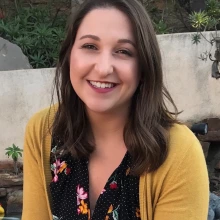
Abstract: Many of us have personal stories of how a dog has benefited our life, but what does the science say? Learn about the research behind the benefits of dogs for human health and well being, from service dogs, to therapy dogs, to our own pet dogs.
About the Speaker: Dr. Kerri Rodriguez is an Assistant Professor in the College of Veterinary Medicine at the University of Arizona. As the director of the Human-Animal Bond Lab (HAB Lab), her research explores the role and impacts of the human-animal bond for human well-being across a variety of settings, populations, and contexts. Dr. Rodriguez received her Ph.D. in Human-Animal Interaction from the Purdue University College of Veterinary Medicine in 2020 and completed a postdoctoral research fellowship with the Human-Animal Bond In Colorado at Colorado State University in 2023. She has led projects investigating the benefits of assistance dogs for individuals with disabilities, the effects of therapy dogs on staff and client/patient wellbeing, and the potential stress-buffering effects of dogs. Her work has been highlighted in media outlets such as the BBC, Washington Post, New York Magazine, People Magazine, and National Geographic.
LINK TO PRESENTATION RECORDING
Speakers: Dr. Shea Austin Cantu and Dr Stephanie Grutzmacher
Time: October 11 2024, from 1:00 PM-2:15PM
Location: McClelland Park, Room 402 or Zoom
Title: Strengthening Food Access and the Food Safety Net: Research and Outreach to Promote
Nutrition Security
Abstract: Social, economic, and environmental factors strongly influence people’s access to healthy foods. By using policy, systems, and environmental (PSE) strategies, community nutrition outreach and education efforts may be able to achieve a more equitable and widespread impact on nutrition security. Shea Cantu and Dr. Stephanie Grutzmacher will describe the need for upstream approaches to community nutrition and the unique value of research-extension collaboration in identifying these approaches. She will share several examples of formative evaluation research and PSE initiatives that aim to improve food access and the food safety net for low-income populations, including studies of barriers to SNAP and food pantry participation and a large-scale fruit and vegetable SNAP incentive program
About the Speakers: Dr. Shea Austin Cantu is the Director of the University of Arizona’s (UA)
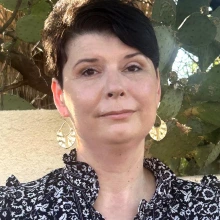
Community Nutrition Education Program comprised of both the Expanded Food and Nutrition Education Program (EFNEP) and the Supplemental Nutrition Assistance Program-Education (SNAP-Education) programs. Shea is also a State Extension Specialist and Associate Professor with the School of Nutritional Science and Wellness. She was hired at the University of Arizona in July of 2023. Prior to coming to the UA, she worked for Tennessee State University’s (TSU) Cooperative Extension program for almost 9 years, first as an Area Specialist, and then as the Program Manager of the Community Nutrition Education Program. Shea then became the Director of the TSU Community Nutrition Education Program in June of 2020.
Dr. Stephanie Grutzmacher is an Extension Specialist and Associate Professor in the School of
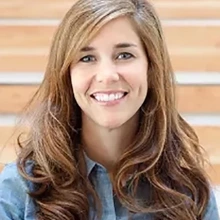
Nutrition Sciences and Wellness. Her applied research explores the unique experiences of food insecurity among vulnerable and underserved populations to identify best practices for food safety net and food access programs. Her work engages community collaborators and Extension to develop, implement, and evaluate programmatic strategies in a variety of settings to improve the social determinants of health. Prior to joining UA, she was a professor of public health at Oregon State University (2015-2024) and an Extension Specialist at the University of Maryland (2008-2015). She received her PhD in Family Studies from the University of Maryland in 2007
LINK TO PRESENTATION RECORDING
Melanie Bertrand, Ph.D., Educational Policy Studies & Practice, University of Arizona
Time: Friday, September 27, 2024 from 1:00 PM – 2:15 PM
Title: Youth Voice: Moving Past Tokensim and Inequitable Representation
Abstract: Youth voice initiatives are a growing trend in schools and community organizations.
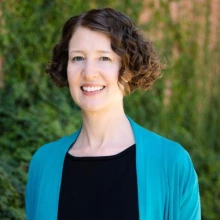
Research has shown that input from youth has great potential to advance social justice policy change in and beyond educational spheres. This is particularly the case when the input comes from the youth facing the most injustice, including along lines of race, disability, and language. However, two issues block this potential. First, youth are tokenized when included in formal decision-making bodies. Second, the youth whose voices are amplified are often those with the most privilege. Dr. Melanie Bertrand will discuss two of her collaborative studies that have explored these intertwined phenomena. She will discuss how a school youth leadership initiative was celebrated for the optics of the project rather than the promise of the youth’s policy recommendations. In addition, she will describe research showing the underrepresentation of Black students, students with disabilities, and bi/multilingual students labeled as English language learners in school leadership. Dr. Bertrand will then indicate possibilities for moving past tokenization and inequitable representation to leverage the potential of authentic and inclusive youth leadership.
About the Speaker: Melanie Bertrand is an associate professor in the Department of Educational Policy Studies & Practice at the University of Arizona and a former K-5 teacher. Her research explores the potential of youth and community leadership to improve schools and challenge systemic racism and other forms of oppression in education. Her work pushes the educational leadership field to include youth--especially youth of color and other youth facing injustice--in expanded conceptions of leadership.
LINK TO PRESENATION RECORDING
Fall 2023 - Spring 2024
Frank Gonzalez, Ph.D., School of Government & Public Policy, University of Arizona
Time: Friday, March 22, 2024 from 1:00 PM – 2:15 PM
Title: Does Physiological Threat Response Predict Political Conservatism? The Role of Race and Ethnicity
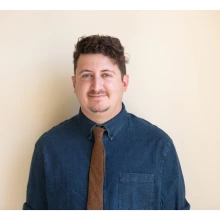
Abstract: Pioneering work on the psychological and biological roots of political orientation has suggested that political conservatism is driven in large part by enhanced negativity bias (i.e., stronger responses to negative over positive environmental stimuli). This work has been criticized on several theoretical fronts, and recent replication attempts have failed. To dig deeper into the contours of when (and among whom) negativity bias predicts conservatism, we investigate a surprisingly overlooked factor in existing literature: race and ethnicity. We propose that political issues represent threat or disgust in different ways depending on one’s race and ethnicity. We are recruiting 200 White, Latinx, African American, and Asian American individuals (in equal numbers) to examine how the relationship between negativity bias and political orientation varies by race/ethnicity across four domains: policing/criminal justice, immigration, economic redistribution, and religious social conservatism.
LINK TO PRESENTATION RECORDING
Jeannette Maré, Science of Kindness Community Collective, The University of Arizona
Time: Friday, December 1, 2023 from 1:00 PM - 2:15 PM
Title: State of Kindness: A Mixed-Methods Reasoned Action Approach to Understanding Prosocial Communication in Organizations
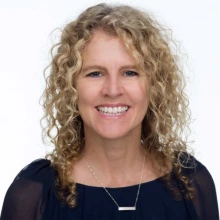
Abstract: A rapidly growing body of evidence concludes that kindness is important for human health and well-being, both in our personal lives and at work. In organizations, kindness benefits consumers, employees, and the organization itself. Consumers who are treated with kindness have better outcomes and employees who work in kind environments are more satisfied and engaged in their work. Despite the known benefits of kindness in organizations, research supports the urgent need to increase kind behavior. Theory-based and empirically driven interventions to increase kind behavior are needed. This “State of Kindness” research uses group concept mapping and the reasoned action framework to operationalize kindness and examine the underlying beliefs and psychological determinants of kind behavior in organizations. This formative research is crucial for developing, implementing, and evaluating organizational kindness interventions.
About the Speaker: Jeannette Maré, PhD, is the Director of the Science of Kindness Community Collective at the University of Arizona. Her path to becoming a community-engaged kindness researcher was a long and winding one. Jeannette’s world changed drastically after the sudden death of her son in 2002. In the incredible grief of losing Ben, learning and sharing about the lifesaving, world-changing power of kindness became her sole focus. With her heart broken open, she founded Ben’s Bells, a nonprofit that inspires and teaches the intentional practice of kindness. Now a research professor at the University of Arizona, Jeannette leads a research collaborative exploring how to increase kindness in interpersonal relationships, organizations, and communities.
LINK TO PRESENTATION RECORDING
Gabrielle E. Miller , SALT Center, The University of Arizona
Time: Friday, November 17, 2023 from 1:00 PM - 2:15 PM
Title: Advancing Solutions to Grand Challenges: The Power of Focusing Higher Education and Nonprofit Leadership
Abstract: When higher education and nonprofit leaders undertake efforts to address social challenges, leadership complexities can be unexpected and considerable. Moreover, the characteristics of each ‘ecosystem’ often magnify this complexity by distracting from program integrity, sustainability, and advancement. This talk will highlight some of the leadership challenges, strategies that can be effective in both higher education and nonprofit setting, and examples of effective solutions and their impact on building social solutions to grand challenges.
About the Speaker: Gabrielle E. Miller, Ed.D. is the Assistant Vice Provost of Student Success and Retention Innovation and the Executive Director of the SALT Center. She has extensive experience in national nonprofit and higher education leadership. Prior to her current roles at the University of Arizona, Dr. Miller was CEO of Raising a Reader, the nation’s most validated family literacy program, then a part of Silicon Valley Community Foundation. Prior to that she was named Vice President of Programs at Reading Is Fundamental in Washington DC. She began her career in Baltimore at the Kennedy Krieger Institute and Johns Hopkins University. As Assistant Vice President, Educational Programs at Kennedy Krieger Institute she oversaw special education services and helped to develop a model secondary education program for students with multiple and complex impairments. She also held a ranked faculty appointment in Johns Hopkins University, College of Education where she taught core courses in the graduate teacher training program and oversaw practicum. Her current research efforts focus on the intersection of social innovation, social enterprise, and leadership in building high quality sustainable interventions for students across all age groups.
Link to Presentation Recording: https://youtu.be/1vhxG6IPYsk?feature=shared
Dr. Ted Futris - Elevating Relationships Through Couples Relationship Education
Dr. Jennifer Earl - Young People and Social Movements: What are Scholars and Movements Missing?
Pandemic Impacts on Children, Youth, and Families (Part 2)
Pandemic Impacts on Children, Youth, and Families (Part)
Dr. Danielle Hiraldo - Sovereignty in a Pandemic: Tribal Codes as Preparedness
Dr. Rajni Nair - Socio-Cultural Climate: Definitions, Measurements, and Implications
Dr. Michelle Perfect - Family Engagement in Pediatric Sleep Interventions Research
Dr. Alyssa Croft - Causes and Consequences of Asymmetrically Changing Gender Role Stereotypes
Joan Timeche - Taking Lead from Tribal Communities: Visioning the Future for Our Families
Dr. Ashley Randall – My Stress is our Stress: Understanding Same-Sex Couples Stress and Coping
Dr. Neil Websdale – Multidisciplinary and Interdisciplinary Approaches to Family Violence
Dr. David Sbarra – Divorce and Health: Toward a Translational Science
Dr. Patrick Grzanka – The 'Born This Way' Wars: Science, Sexuality, and the Future of Equality
Dr. Laura Wray-Lake – Youth Civic Empowerment in Urban Community Context
Dr. Francesca Lopez – Nurturing Confianza
Dr. Eleanor Seaton – Racial Discrimination Experiences Among Black Youth
Dr. Kory Floyd – The Importance of Being Prosocial
Dr. Sabrina Helm – Consumer Mindfulness as a Pathway to Decrease Overconsumption

